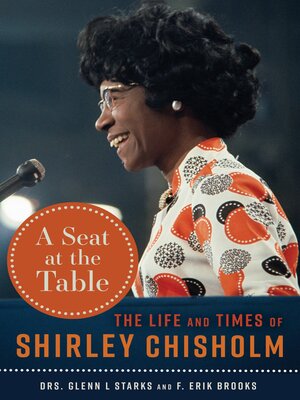
Sign up to save your library
With an OverDrive account, you can save your favorite libraries for at-a-glance information about availability. Find out more about OverDrive accounts.
Find this title in Libby, the library reading app by OverDrive.



Search for a digital library with this title
Title found at these libraries:
| Library Name | Distance |
|---|---|
| Loading... |
When Shirley Chisholm was asked why she would dare run for president, her response was, why not her? Shirley Anita St. Hill Chisholm rose from being the child of immigrants to the United States to running for the highest office in the land. She was both the first African American woman elected to the US Congress and the first African American woman of a major political party to make a serious run for president of the United States. These achievements were not in spite of her background but rather because of it. She persevered by being steadfast in her political convictions and unwilling to compromise on the issues she believed in. Chisholm directly challenged the political establishment and gave a political voice to so many segments of society that were historically ignored—women, racial minorities, young people, the gay community, domestic and agricultural workers, and the poor—not only in her home district in Brooklyn, New York, but across the country. Her run for the 1972 Democratic presidential nomination may not have ended in victory, but it was successful in forging a grassroots campaign that united diverse Americans behind a candidate who championed their collective interests. Her efforts laid the groundwork for change then, now, and in the future. Without Shirley Chisholm there may not have been a Hillary Clinton, Barack Obama, or Kamala Harris.







